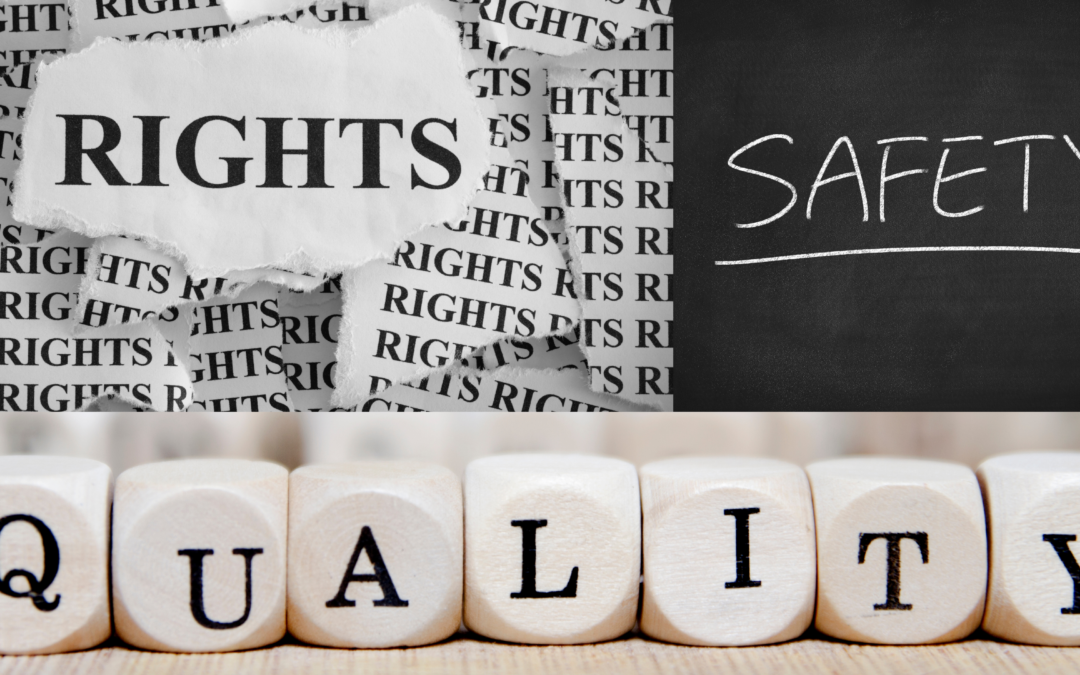Listening to advocates speak and give examples during online discussions and workshops facilitated by DANA in 2020 and 2021 underscored how knowledgeable disability advocates are about the experiences of people with disability interacting with complex and flawed systems of service delivery and reporting and complaints mechanisms. This submission to the Disability Royal Commission collates the de-identified direct quotes of advocates under themes relevant to the expansive topic of “safeguards and quality services”. Its structure is influenced by the phrasing of questions and topics identified in the DRC Issues paper on ‘Safeguards and quality’, published in November 2020.
This lengthy document reflects just a fraction of the insights and experiences of advocates and independent advocacy organisations in their work upholding the rights of many individuals with disability around Australia: Rights, Safety and Quality – Voices of Advocacy – DANA Submission to DRC – December 2022
Executive Summary
In their daily work, disability advocacy organisations work to safeguard the human rights of individuals with disability to be included in the community, live free from violence, abuse neglect and exploitation and access quality supports. Disability advocates possess extensive insights about the strengths and shortcomings of Australian mechanisms designed and implemented to promote safety and quality across a range of service systems used by people with disability. In DANA consultations, they have spoken at length about the barriers people with disability experience when accessing or interacting with complaint mechanisms, whether this is fear of retribution or other consequences of making a complaint, lack of rights awareness or effective complaints responses, or segregation and isolation from the community.
Disability advocates also identify inconsistencies and gaps in safeguarding frameworks applied across Australia. Through the nature of their work, they are generally more exposed to the characteristics of poor quality disability services. Yet they can describe and articulate the features of high quality services, including that they:
- give attention to the needs, will and preference of the individual with disability;
- support autonomy, control and choice;
- train staff in human rights principles;
- recognise ‘behaviour’ as communication;
- strive to be trauma-informed;
- lead cultural change at all levels; and
- ensure access to independent advocacy and support to make complaints.
Independent advocacy organisations themselves can play a vital role in strengthening informal safeguards and developing the personal capacity of people with disability to safeguard themselves, including through their work building human rights awareness and supporting self-advocacy skills. This can also occur through peer support, supported decision making and other forms of education and capacity building.
Generally, efforts to uphold independence, choice and control in service contexts contribute to the quality of services and safety of people with disability. Advocates have observed a range of service settings operating with limited or insufficient oversight or active monitoring for signs of abuse, violence, neglect or exploitation of people with disability. To improve the current arrangements, advocates believe ensuring the accessibility and integrity of complaints mechanisms and improved access to independent advocacy for people with disability at risk are vital challenges.
These improvements require ensuring the independent advocacy sector is resourced, networked and supported to meet the needs of all people with disability. There also needs to be cross-sector efforts to focus on human rights across all service settings and government investment in disability rights awareness and education across the community. Particular attention must be paid to identifying and reaching people who need additional supports, including those who face communication barriers and people who have limited or no informal support networks. To address intersectional disadvantage and discrimination, improvements must also meet the specific needs of groups who have been identified at higher risk of violence, abuse neglect and exploitation, including First Nations people with disability, culturally and linguistically diverse communities, children and young people, non-binary people, women and girls.

